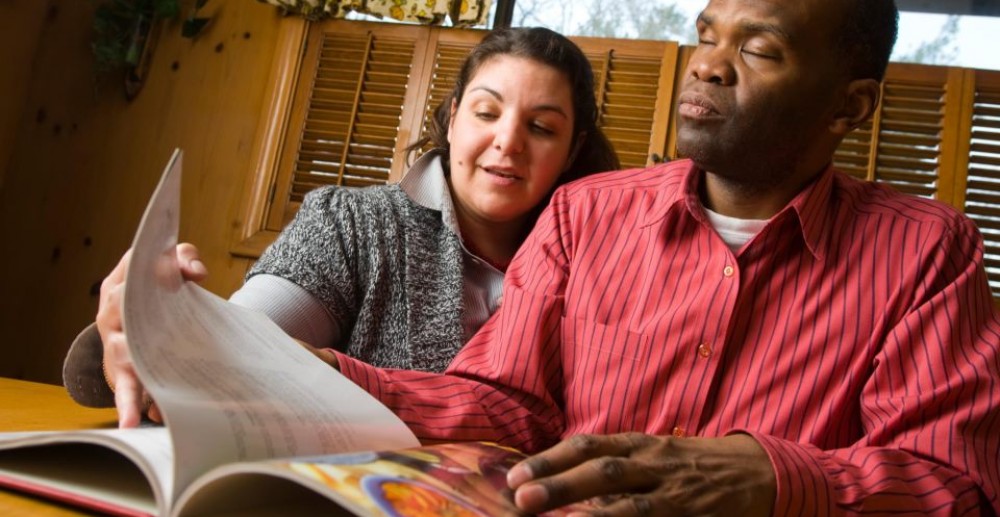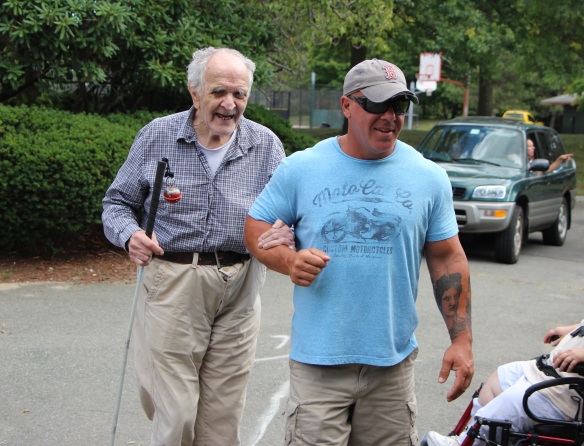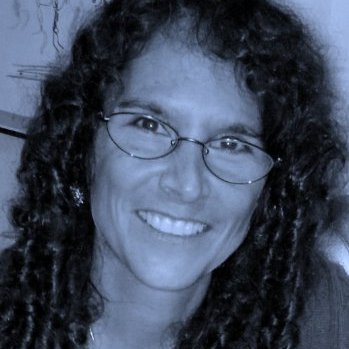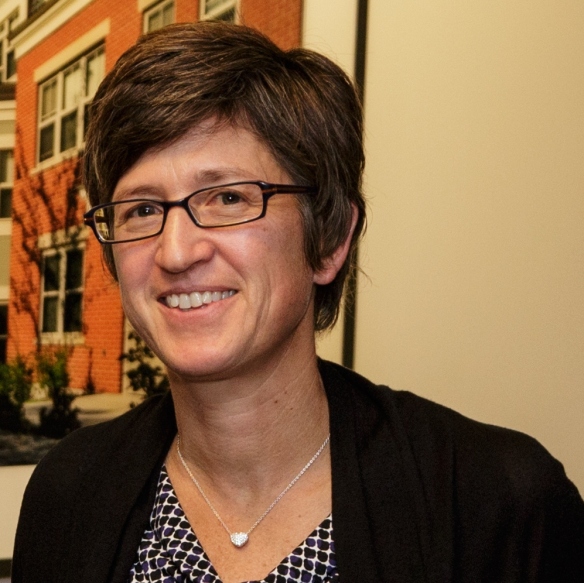Steve Jordan has devoted his career to helping others achieve their goals. As the Director of Orientation and Mobility for the Massachusetts Association for the Blind and Visually Impaired (MABVI), Jordan helps to train individuals in how to navigate their environments safely and as independently as possible.
This desire to assist and motivate others can also be seen in Jordan’s other passion: coaching youth sports. A Massachusetts native currently living in Walpole, Jordan received his Bachelor’s from Framingham State University, and afterwards worked at Newton North High School as both a special education aide and a coach for football, baseball, and wrestling. Today, in addition to his duties at MABVI and as the proud father of five children (including a set of triplets born last February!), Jordan continues to coach all three sports at the Nobles and Greenough School in Dedham.
Jordan always knew he wanted to help people through teaching and coaching, but it wasn’t until he was working at Newton North that he discovered exactly how. As a special education aide, Jordan found that one of the students he was working with one-to-one would leave for 45 minutes twice a week, and Jordan never knew why until he asked if he could come along. Continue reading





